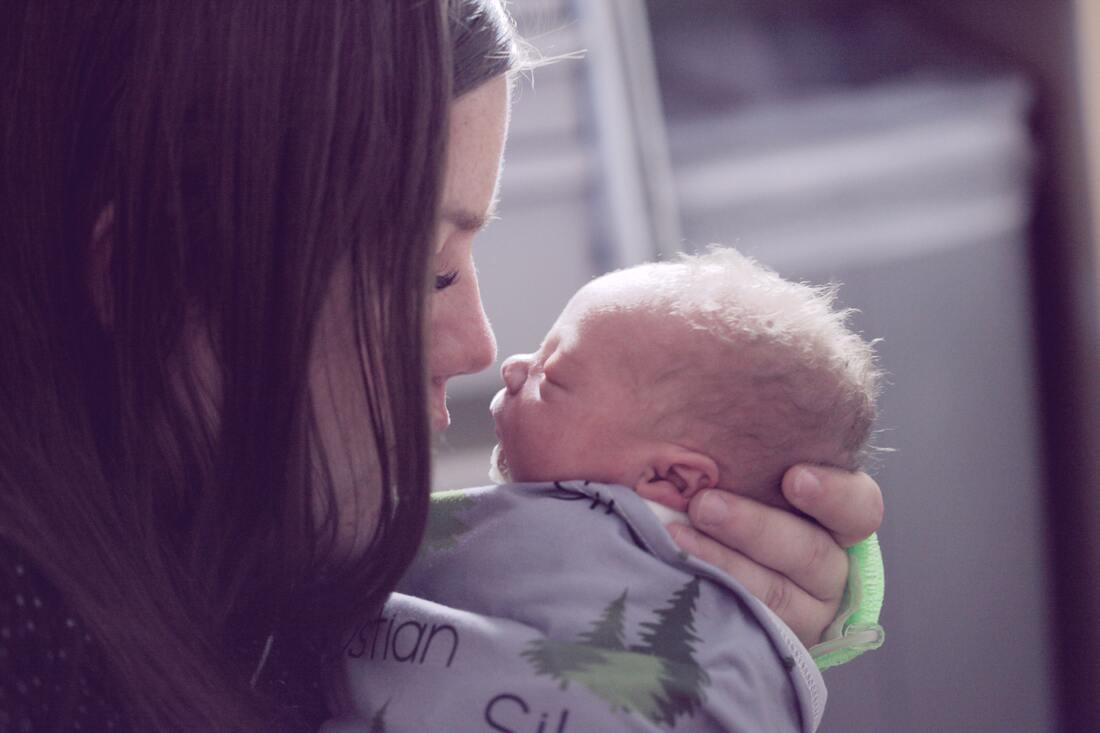1. Pelvic pain. Pelvic pain postpartum can be caused by a number of things, such as ligament strains, muscle weakness, bladder or bowel dysfunction, or even scar tissue. A physiotherapist can assess to see whether exercise might help, and of course can refer on to specialists if there is something more complicated that requires further treatment.
2. SIJ Pain. Sacro-iliac joint pain is a common problem postpartum, and can be caused by ligament laxity or muscle weakness. Sitting right at the top of the hips right near the lower back, SIJ pain can impact just one side or both, and can have symptoms that refer down into the buttocks or legs. 3. Urinary incontinence. Postnatal urinary incontinence can be caused by a number of things, such as weakened pelvic floor muscles, nerve damage, or an overactive bladder. This can be linked with other symptoms such as back or shoulder pain, and a feeling of heaviness or pain during sex. Exercises can be incredibly beneficial to help rebuild strength and stretch through tight areas. 4. A feeling of heaviness between your legs. This could indicate a prolapse, which is when organs in the pelvis fall out of place. A physiotherapist can help relieve symptoms with exercises, or refer on to specialists dealing in prolapse. 5. A sore wrist. Holding a baby for long hours can lead to de Quervain's tenosynovitis, "mother's wrist" or "baby wrist". A physiotherapist can help you to release tight muscles and show you how to hold your bub and other items (like your phone) to minimise pain. 6. Back pain. During and after pregnancy, your spine and pelvis go through a series of changes in load and shape which can lead to back pain. With a constantly growing baby to hold addressing this early is key, and your physiotherapist can help to release tight muscles and provide exercises to restore strength in the back and core muscles, as well as helping you to learn how to lift and carry bub properly to prevent making pain worse. 7. Neck pain or headaches. Poor posture from nursing or carrying your baby can lead to neck pain and tension headaches or migraines. Looking at holding and feeding positions and releasing tight muscles, as well as providing exercises and stretches can help! 8. Numbness, tingling, and pain in the hand and forearm. Symptoms in the hand and forearm may be a sign of carpal tunnel syndrome. This is caused by compression of the median nerve in the wrist and can be aggravated by pregnancy and holding baby while nursing. Teaching you how to position and rest the hand and wrist as well as splinting may be good options. 9. Shoulder pain. This can be caused by nursing position, carrying your baby, or poor posture. Again releasing tight muscles and giving stretches and exercises can be incredibly helpful. 10. Lower back pain and stomach bulges when crunching. This may be a sign of diastasis recti. This is a condition where the abdominal muscles separate during pregnancy and do not heal properly afterwards. It can lead to back pain and incontinence if not resolved, and ideally should be addressed in the first 12 months post birth. If you have a gap of more than two fingers between your abdominal muscles, you may have diastasis recti. Physiotherapy can help to strengthen the muscles and reduce the separation. If you are experiencing any of these symptoms, don't hesitate to reach out to a physiotherapist for help! Physiotherapy can help resolve many postpartum issues and get you feeling like your old self again sooner than you think. Give us a call at our friendly Tarragindi physiotherapy clinic on 07 3706 3407 or pop us an email to [email protected] - we would love to help! Check out our Postnatal Pilates Course, more information about our Women's Health Physiotherapy services or learn about what to expect in a women's health consultation.
0 Comments
Leave a Reply. |

 RSS Feed
RSS Feed